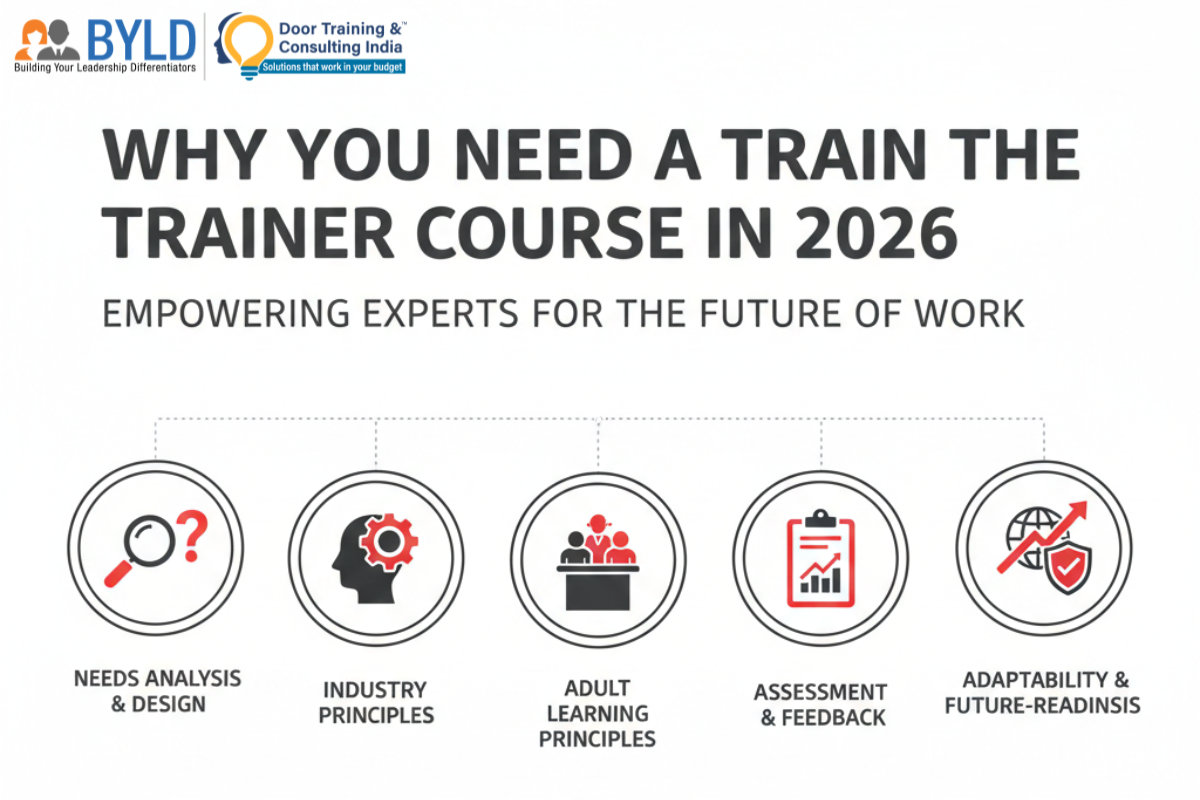In today’s challenging working culture, influencing others in the workplace is crucial for influencing organisational effectiveness and individual performance. Thus, having powerful influencing skills helps professionals shape decisions, drive changes, and inspire other colleagues. This blog highlights influencing skills, why they are essential, how to influence others in the workplace, and how to improve influencing in the workplace.
What are influencing skills?
The skills individuals need to communicate effectively with other teammates and resolve conflicts effectively. These skills are known as influencing skills since they help you persuade others. Influencing skills are the ability to change people’s ideas, behaviours, or choices by means of efficient communication, persuasion, and relationship-building. Unlike orders based on power, influence depends on cooperation and mutual respect. With these skills, individuals can easily share their opinions with others and increase the overall productivity of the business. To maintain a good working environment and reduce the chances of conflicts between employees, using influencing skills is the first and foremost option. A successful professional uses many valuable skills to influence others at work.
Key Components of Influencing Skills:
1. Communication: Effective communication ensures that each message is understood by the audience clearly, helping to create stronger engagement. Clear communication involves compelling articulation of ideas and proposals.
2. Persuasion: This component of influencing skills involves using logic, emotion, and credibility to inspire others to take the desired action willingly.
3. Empathy: This involves understanding and addressing the needs and concerns of others. By genuinely seeing things from others’ perspectives, individuals can build deeper connections and reduce resistance.
4. Credibility: Building trust and demonstrating expertise. Consistency, honesty, and delivering on promises are key to maintaining long-term influence.
5. Networking: A varied and reliable network offers assistance, creates possibilities, and strengthens your capacity to reach more people.
6. Emotional intelligence: It is the capacity to identify, comprehend, and control your feelings as well as those of others to promote fruitful relationships.
7. Negotiation: It is the art of finding mutually beneficial solutions to disagreements or conflicts. Successful negotiators seek win-win solutions that maintain good connections beyond the negotiation itself.
8. Adaptability: The willingness to adjust approaches depending on the audience, situation, or feedback received.
9. Set a good example: Show the behaviors and attitudes you want others to follow. Demonstrating integrity, accountability, and a positive attitude can inspire others to follow your lead.
10. Practice Active Listening: Listen attentively to others’ viewpoints and show empathy. Acknowledge their concerns and incorporate their feedback into your proposals. This builds trust and encourages collaboration.
Why is influence significant?
Influence is vital in the workplace because it enables individuals to inspire, guide, and motivate others, fostering collaboration, achieving goals, and building stronger relationships, leading to a positive working atmosphere, and enhancing productivity.
The Importance of Influencing in the Workplace:
1. Driving Organisational Change: Influencing skills are crucial for driving change initiatives within an organisation. Whether it’s adopting new technologies, restructuring teams, or implementing new policies, the ability to persuade stakeholders and gain their support is essential for successful change management.
2. Enhancing Leadership Effectiveness: Good leaders inspire and drive their teams by using influence. Leaders who express a clear vision, show compassion, and establish trust may help their teams reach shared objectives and create a pleasing workplace.
3. Facilitating Collaboration: Influencing skills promote collaboration by encouraging open communication and mutual respect. When team members feel heard and valued, they are more likely to contribute ideas and work together harmoniously.
4. Improving Decision-Making: Professionals who can influence effectively are often better at decision-making. They gather input from diverse sources, consider various perspectives, and build consensus, leading to more informed and balanced decisions.
5. Advancing Career Growth: Influencing skills are a key differentiator in career advancement. Professionals who can effectively advocate for their ideas, negotiate successfully, and build strong networks are more likely to achieve promotions and leadership positions.
6. Enhancing Customer Relations: In roles with client engagement, influence in the workplace is essential for developing rapport, getting consumer demands, and providing solutions that satisfy those needs. Strong influencing skills help to improve client happiness and loyalty.
Read More – Strategic Mindset: Cultivating Effective Strategic Thinking Skills
Influencing Abilities In The Workplace
To influence others in the workplace, there are many ways to use influencing abilities in the workplace, as follows:
Establish confidence: Gaining your colleagues’ confidence puts you in a stronger position to influence them. Being honest and open with your coworkers at all times can help you gain their confidence; furthermore, being a reliable team member will help.
Focus on actions: To gain influence on your coworkers, it is essential to show your words by how you act. You may create a plan and carry it out to evaluate its efficacy.
Deliver reliable results: Consistency in performance is also important to building a reputation as a professional. This makes reliability in performance instrumental to becoming influential in the workplace.
Be dynamic: Showing your adaptability requires the capacity to change with the times while remembering the best goals of the company for which you work. This involves valuing people’s views wherever necessary to get the intended outcomes, which then builds your team members’ confidence.
How do you influence others in the workplace?
The skill of influencing others is a social skill that people often don’t pay much attention to.” It means getting others to see things your way, agree with your ideas, or even change their opinion about something. This eventually affects the individual and business performance, as businesses work to grow and meet their clients’ needs. The good news is that influence isn’t something you’re just born with; you can learn it, improve it, and use it every day.
Here are some easy ways anyone can build their influence at work, no matter what their job is.
1. Speak organically: Speaking honestly and naturally is a good first step when trying to influence coworkers.” Speak naturally, as if enjoying a conversation with friends. Use plain English and avoid uncommon or flowery language that seeks to impress. Communicating in an informal yet professional manner and with a casual tone of voice can help establish a connection that comes across as genuine and trustworthy.
2. Cater to the audience: Take the time to learn about and comprehend the audience while determining those who need to be persuaded the most. Anticipate any questions that may be asked and prepare to address the benefits of the topic to key stakeholders because they will make the ultimate decision. Understanding that business communication is rarely a one-size-fits-all model, a key practice in influencing others is to be able to adapt content and style to target the decision makers. Create a collaborative environment by asking questions to learn how much information should be shared.
3. Visualise the end goal: When trying to influence anyone, such as a supervisor, client, or colleague, the focus should remain on the end goal. Identify the preferred outcome and map out a path to achieve it. Having a clear vision of the final product and packaging it in the best format for the selected audience can make it easier to share the objectives, benefits, and achievements that will drive success.
How To Improve Influencing Skills
To improve your influencing skills to grow as professionals, below are some key steps that need to be taken into consideration.
1. Be aware of yourself and your surroundings
Awareness means the ability to assess your surroundings as well as yourself. It requires being constantly aware of the people with whom you work, your workplace and your reactions to different situations. This helps you be conscious of your actions and ensures your reactions are productive and can set an example for those around you.
2. Be resilient in your efforts
While influencing others, resilience and durability are important for sustainable success as a leader. Durability is the ability to stay persistent despite challenges or hardships. It is necessary to approach colleagues persistently and adopt various techniques to motivate them to consider your viewpoints.
3. Improve your interpretation skills
Good interpretation skills are essential to making educated assumptions and understanding people and situations. One can also use interpretation to understand an individual’s non-verbal behaviour like body language and facial expressions, to guide their actions. Understanding people on a personal level can make it easier to interact with them and influence them.
4. Build up your confidence levels
Self-confidence is an attractive quality that encourages others to emulate and listen to you. Feeling confident about your abilities and accepting who you are is essential to succeeding in your professional endeavors. When you are confident, you exude a sense of authority and expertise, allowing people to follow you and rely on you.
5. Develop your persuasion skills
Persuasion involves using facts and arguments to convince someone to agree with your point of view. Influencing and persuasion skills can be helpful in a variety of situations in the workplace for several industries and job roles. With good persuasion skills, you can reduce conflict and inspire others to take action for the benefit of the organisation for which you work.
Conclusion
Influencing skills are a cornerstone of professional success, allowing individuals to drive change, foster collaboration, and advance their careers. Whether it’s leading change, collaborating effectively, making sound decisions, or building stronger relationships, mastering the art of influence can dramatically boost personal and organisational outcomes. Fortunately, these skills are not innate; they can be cultivated and refined with conscious effort, persistence, and strategic practice. By honing your influence in the workplace, you position yourself as a leader, a problem solver, and a valued contributor in your workplace.
FAQs
No, influencing skills are valuable for professionals at all levels. “From beginners to top leaders, everyone can benefit from influencing others — it makes teamwork, decision-making, and personal career growth.
Influencing skills can absolutely be learned and developed. Through practice, self-awareness, and feedback, anyone can strengthen their ability to influence others effectively.
You can practice by actively listening to your colleagues, adapting your communication style to your audience, offering support, leading by example, and seeking opportunities to persuade others respectfully during meetings or discussions.
Stay persistent but flexible. Try different communication strategies, seek feedback, build stronger relationships, and remain empathetic to others’ perspectives. Sometimes influence takes time and repeated efforts to be effective.
Improve persuasion by understanding your audience, presenting clear and logical arguments, appealing to emotions, and using storytelling to make your message impactful.
Credibility ensures that others trust and respect your opinions, making them more likely to be influenced by your ideas and decisions.
Non-verbal communication, such as maintaining eye contact, using open gestures, and adopting a confident posture, enhances credibility and persuasion.
Building trust requires honesty, reliability, active listening, delivering on promises, and maintaining transparency in communication.
By developing and mastering influencing skills, professionals can create meaningful impact, drive change, and build strong relationships in their workplace.
Acknowledge concerns, ask questions to understand objections, and address them with logic, empathy, and alternative solutions.
Influence is about guiding and persuading others with integrity, transparency, and mutual respect. Manipulation, on the other hand, involves deceptive tactics to control others for personal gain.
Influencing skills are highly valued across all industries, especially in roles involving leadership, sales, customer service, marketing, project management, and human resources. However, any job requiring collaboration, negotiation, or team alignment benefits from strong influencing skills.
Yes, if not practiced mindfully, attempts to influence may be perceived as pressure or manipulation, leading to resistance or conflict. It’s essential to use empathy, active listening, and mutual respect to ensure influence is positive and collaborative.
Emotional intelligence is at the core of influencing skills. Being aware of your emotions and understanding others’ emotions helps in adapting your message, responding constructively, and fostering strong interpersonal relationships that increase your influence.
People’s communication styles differ depending on their cultural background, including their preferences for directness, tone, and nonverbal clues. Being aware of these distinctions leads to a more inclusive and respectful environment.
- Overpowering the conversation instead of listening
- Ignoring the audience’s needs or concerns
- Using manipulation instead of honest persuasion
- Lacking credibility or consistency
- Being inflexible or unempathetic






